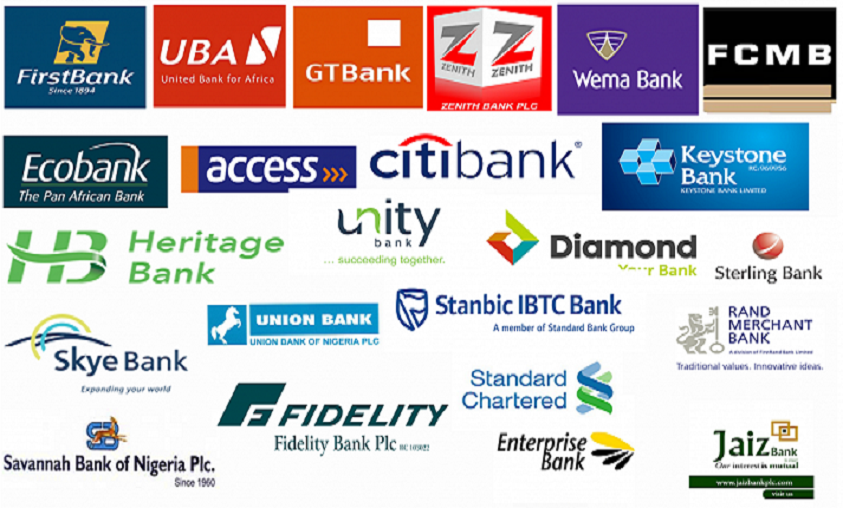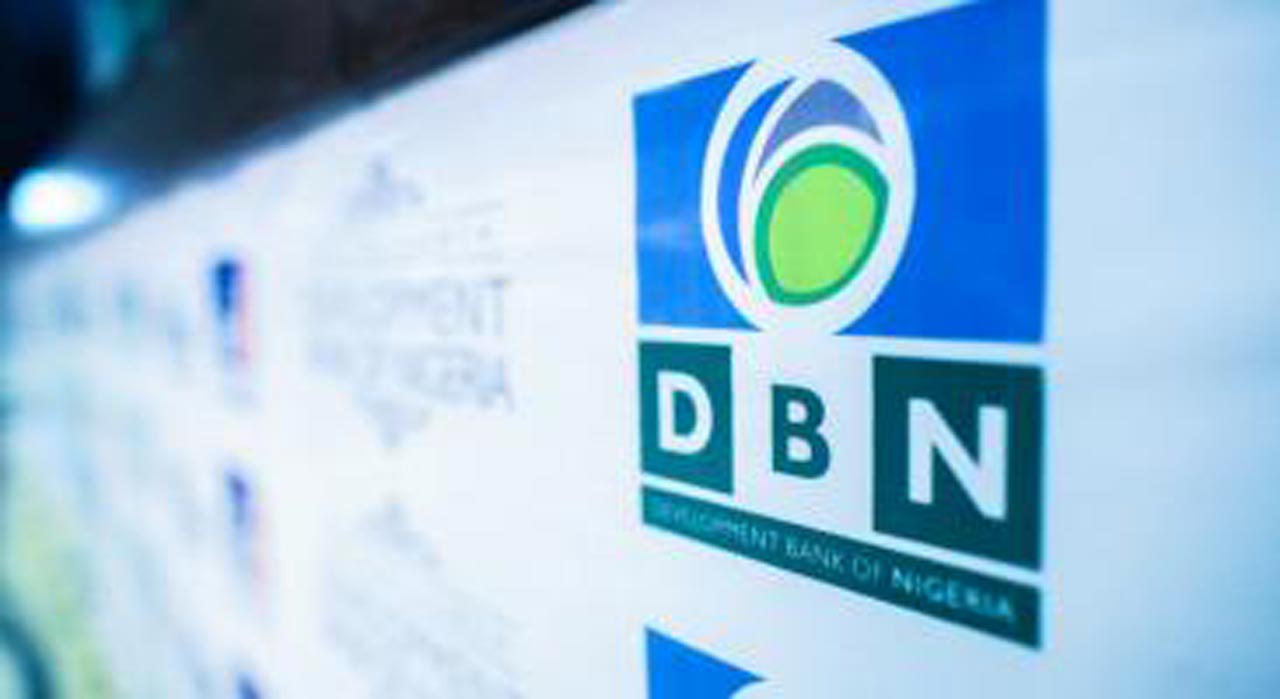Banking
Drop in T-Bill Supply May Affect Profits of Nigerian Banks—Fitch

By Modupe Gbadeyanka
Banks operating in Nigeria may suffer a drop in their profit in the first quarter of 2018 as a result in the slowdown in the supply of treasury bills, London-based rating agency, Fitch Ratings, has revealed.
In a statement issued yesterday by the firm, it said Nigerian banks may find it more difficult to sustain profitability given the decline in net treasury bill (T-bill) issuance in Nigeria’s 1Q18 issuance programme.
The slowdown in T-bill issuance marks a change of strategy as the government looks to increase its financing from external sources and longer-dated domestic issuances.
Record T-bill issuance in 2017 helped support the Central Bank of Nigeria (CBN)’s strategy to maintain Naira exchange-rate stability.
High yields on T-bills issued in 2017 (around 13%-14% on 90-day T-bills) attracted investors and helped to support the Naira.
An increase in oil export earnings and the introduction in April 2017 of the Nigerian Autonomous Foreign Exchange Rate Fixing (NAFEX) mechanism, commonly referred to as the “Investors and Exporters’ FX Window”, also helped naira stabilisation during the second half of 2017.
Nigerian banks are highly reliant on net interest income for profitability and T-bills proved to be an important source of profits in 2017. Interest on securities represented 30% of total gross interest earned in 9M17, averaged across Nigerian banks rated by Fitch (2016: 23%).
By end-September 2017, government securities including T-bills represented more than 15% of the banks’ assets as new lending fell, reflecting weak credit demand, tighter underwriting standards and banks’ reluctance to extend new loans as they focused on extensive restructuring of troubled oil-related and other portfolios, Fitch said.
It noted that even the country’s largest banks cut back on new lending, with Guaranty Trust Bank’s stock of outstanding loans falling 10% during 9M17, FBN Holdings’ by 4.6%, Zenith’s by 3.7% and Access’s by 1.1%. United Bank for Africa’s loan book grew 5.6%, but this is likely to have been driven by non-Nigerian lending as the bank operates in 22 other African countries.
“We expect falling T-bill yields and lower issuance to put pressure on Nigerian banks’ profitability in 2018.
“The CBN’s latest issuance schedule shows NGN1.1 trillion (USD3.6 billion) of rollovers in 1Q18 against NGN1.3 trillion of maturing bills. In 2017, rollovers fully covered maturing bills,” the rating company said.
Fitch predicted that performance metrics at all banks will be affected by weak demand for lending, falling T-bill yields, lower foreign-currency translation gains and rising loan impairment charges, but the largest banks are best placed to withstand these challenges.
Operating returns are still strong at GTB (9M17 operating return on average equity (ROAE): 37%), Zenith (28%), UBA (22%) and Access (20%), while FBNH’s operating ROAE is lower (12%) but improving.
However, some second-tier banks with a 9M17 operating ROAE of 4%-6% may struggle to remain profitable in 2018.
“We highlighted falling profitability for Nigerian banks in our 2018 Outlook report for sub-Saharan banks, available by clicking on the link below.
“Our 2018 rating outlook for the Nigerian banking sector is negative, reflecting continued fragility in the operating environment and the Negative Outlook on the sovereign’s ‘B+’ rating,” it said.
Banking
Access Bank Opens Branch in Malta to Strengthen Europe-Africa Trade Ties

By Modupe Gbadeyanka
To strengthen Europe-Africa trade ties, Access Bank has opened a new branch in Malta. It will focus on international trade finance, employing approximately 30 people in its initial phase, with plans for controlled expansion over time.
It was learned that this Maltese branch was established by Access Bank UK Limited, the subsidiary of Access Bank Plc, which is also the subsidiary of Access Holdings Plc, which is listed on the Nigerian Exchange (NGX) Limited.
Access Bank Malta Limited commenced operations after obtaining a banking licence from the European Central Bank (ECB) and the Malta Financial Services Authority (MFSA).
Access Bank said the licence marks a transformative milestone in bolstering Europe-Africa trade flows.
Malta, a renowned international financial centre, and a gateway between the two continents, is strategically positioned to play a pivotal role in advancing commerce and fostering economic partnerships.
This strategic expansion into Malta enables The Access Bank UK Limited to leverage growing trade opportunities between Europe and Africa.
It underscores the organisation’s commitment to driving global trade, financial integration, and supporting businesses across these regions.
“By establishing operations in Malta, we will gain a foothold in a market that bridges European and North African economies, moving us one step closer to our goal of becoming Africa’s Gateway to the World.
“It further enhances our bank’s capacity to support clients with innovative solutions tailored to cross-border trade and investment opportunities,” the chief executive of Access Bank, Mr Roosevelt Ogbonna, stated.
“Europe has emerged as Africa’s leading trading partner, driven by initiatives such as the Economic Partnership Agreements between the EU and African regions and the African Continental Free Trade Area (AfCFTA).
“With Europe-Africa economic relations entering a new phase, The Access Bank Malta Limited is ideally positioned to deepen trade and meet the financing and banking needs of our clients in these expanding markets,” the chief executive of Access Bank UK, Mr Jamie Simmonds, commented.
Also speaking, the chief executive of Access Bank Malta, Renald Theuma, said, “Malta is uniquely positioned as a bridge between Europe and Africa, making it an ideal location for our subsidiary. This move allows The Access Bank Malta Limited to engage more closely with customers in Europe and deliver tailored financial solutions that drive growth and connectivity across both continents.”
Banking
Goldman Sachs, IFC Partner Zenith Bank, Stanbic IBTC, Others to Empower Women Entrepreneurs

By Adedapo Adesanya
The International Finance Corporation (IFC) and Goldman Sachs have announced a new partnership with African banks, including Nigeria’s Zenith Bank and Stanbic IBTC Nigeria to support the Goldman Sachs 10,000 Women initiative, a joint programme launched in 2008 to provide access to capital and training for women entrepreneurs globally.
The two Nigerian banks are part of nine financial institutions from across Africa which have agreed to join the 10,000 Women initiative committing to leverage the business education and skills tools the programme provides to create more opportunities for women entrepreneurs across the continent by providing access to business education.
Others banks include Stanbic Bank Kenya, Ecobank Kenya, Ecobank Cote d’Ivoire, Equity Bank Group, Banco Millenium Atlantico – Angola, Baobab Group, and Orange Bank.
Speaking on this, Ms Charlotte Keenan, Managing Director at Goldman Sachs said – “10,000 Women has had a powerful impact to date, but we know that there are more women to reach and more potential to be realized.
“We are delighted to partner with IFC to supercharge the growth of women-owned businesses across Africa, and mainstream lending to female business leaders. We remain committed to supporting entrepreneurs with the access to education and capital that they need to scale.”
Since 2008, the 10,000 Women initiative has provided access to capital and business training to more than 200,000 women in 150 countries.
“This expanded initiative marks a significant step forward in creating equitable economic opportunities for women in Africa, enabling them to build stronger, more resilient businesses and to realize their entrepreneurial goals,” said Ms Nathalie Kouassi Akon, IFC’s Global Director for Gender and Economic Inclusion.
Goldman Sachs’ 10,000 Women initiative complements the Women Entrepreneurs Opportunity Facility (WEOF), launched in 2014 by Goldman Sachs and IFC as the first-of-its-kind global facility dedicated to expanding access to capital for women entrepreneurs in emerging markets.
Banking
Development Bank of Nigeria Wins Financial Inclusion Leadership Award

By Aduragbemi Omiyale
In recognition of its unwavering commitment to fostering access to financing for Nigerian micro, small and medium enterprises (MSMEs), Development Bank of Nigeria Plc has been rewarded with the Financial Inclusion Leadership Award at the Champions of Inclusion Nigeria Financial Inclusion Awards.
This was at the 2024 International Financial Inclusion Conference (IFIC) organised by the Central Bank of Nigeria (CBN) in collaboration with the World Bank and other stakeholders.
The chief executive of the lender, Mr Tony Okpanachi, said the recognition affirms the company’s efforts in expanding access to financial services for MSMEs in Nigeria.
“We are honoured to receive the Financial Inclusion Leadership Award, which is a testament to our bank’s commitment to expanding access to financial services for all Nigerians. This award recognises our efforts to bridge the financial inclusion gap, particularly for a priority sector like the MSMEs.
“Additionally, this award is a validation of our strategic focus on driving financial inclusion for small businesses, and we are proud to be at the forefront of this initiative that drives that. We will continue to innovate and expand our financial inclusion programmes, ensuring that more Nigerian small and startup businesses have access to services,” he stated.
On his part, the Chief Operating Officer of DBN, Mr Bonaventure Okhaimo, said the accolade demonstrates the firm’s dedication to driving financial inclusion and economic growth in Nigeria.
“This award acknowledges our Bank’s innovative approach to widening opportunities for MSMEs in Nigeria to grow and scale their businesses,” he said.
“This award will motivate us to continue pushing the boundaries of financial inclusion, exploring more innovative solutions and partnerships to expand our reach and impact.
“We are committed to ensuring that more small businesses and startup enterprises in Nigeria have access to financial services, this award will further inspire us to accelerate our efforts in this regard,” he stated.
-

 Feature/OPED5 years ago
Feature/OPED5 years agoDavos was Different this year
-
Travel/Tourism8 years ago
Lagos Seals Western Lodge Hotel In Ikorodu
-

 Showbiz2 years ago
Showbiz2 years agoEstranged Lover Releases Videos of Empress Njamah Bathing
-

 Banking6 years ago
Banking6 years agoSort Codes of GTBank Branches in Nigeria
-

 Economy2 years ago
Economy2 years agoSubsidy Removal: CNG at N130 Per Litre Cheaper Than Petrol—IPMAN
-

 Banking2 years ago
Banking2 years agoFirst Bank Announces Planned Downtime
-

 Sports2 years ago
Sports2 years agoHighest Paid Nigerian Footballer – How Much Do Nigerian Footballers Earn
-

 Technology4 years ago
Technology4 years agoHow To Link Your MTN, Airtel, Glo, 9mobile Lines to NIN

















